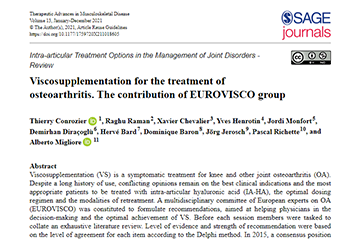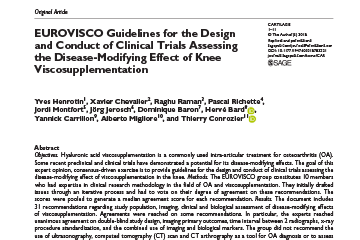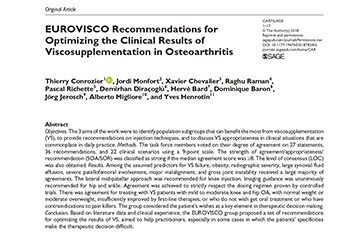Effect of Mannitol on Hyaluronic Acid Stability in Two in Vitro Models of Oxidative Stress by Marguerite Rinaudo, Bernard Lardy, Laurent Grange and Thierry Conrozier; Polymers 2014, 6(7), 1948-1957; doi:10.3390/polym6071948 – published online 8 July 2014.
Abstract:
In this paper, we propose the evaluation of the mannitol’s ability to reduce hyaluronic acid (HA) degradation using two different models of oxidative stress. Firstly, a solution of hyaluronan and a solution of the same HA including mannitol in PBS buffer were submitted to an oxidative stress generated by the addition of xanthine + xanthine oxidase generating oxygen free radicals. Different enzyme concentrations were used and the HA properties were studied after 24 h of contact at ambient temperature. Decreases of the viscosity of the solution were assessed by rheometry (viscous and elastic module) and that of HA molecular weight was determined by steric exclusion chromatography. Rheologic behavior was assessed on identical HA solutions subjected to another model of oxidative stress imposed by addition of hydrogen peroxide. The influence of mannitol concentration on HA degradation was also demonstrated. Whatever the stress applied, it appears very clearly that mannitol protects hyaluronic acid from mediated oxygen free radicals degradation. These in vitro results suggest that mannitol could be a simple way to significantly increase the intra-articular residence time of the injected hyaluronic acid and therefore might improve viscosupplementation effectiveness.




